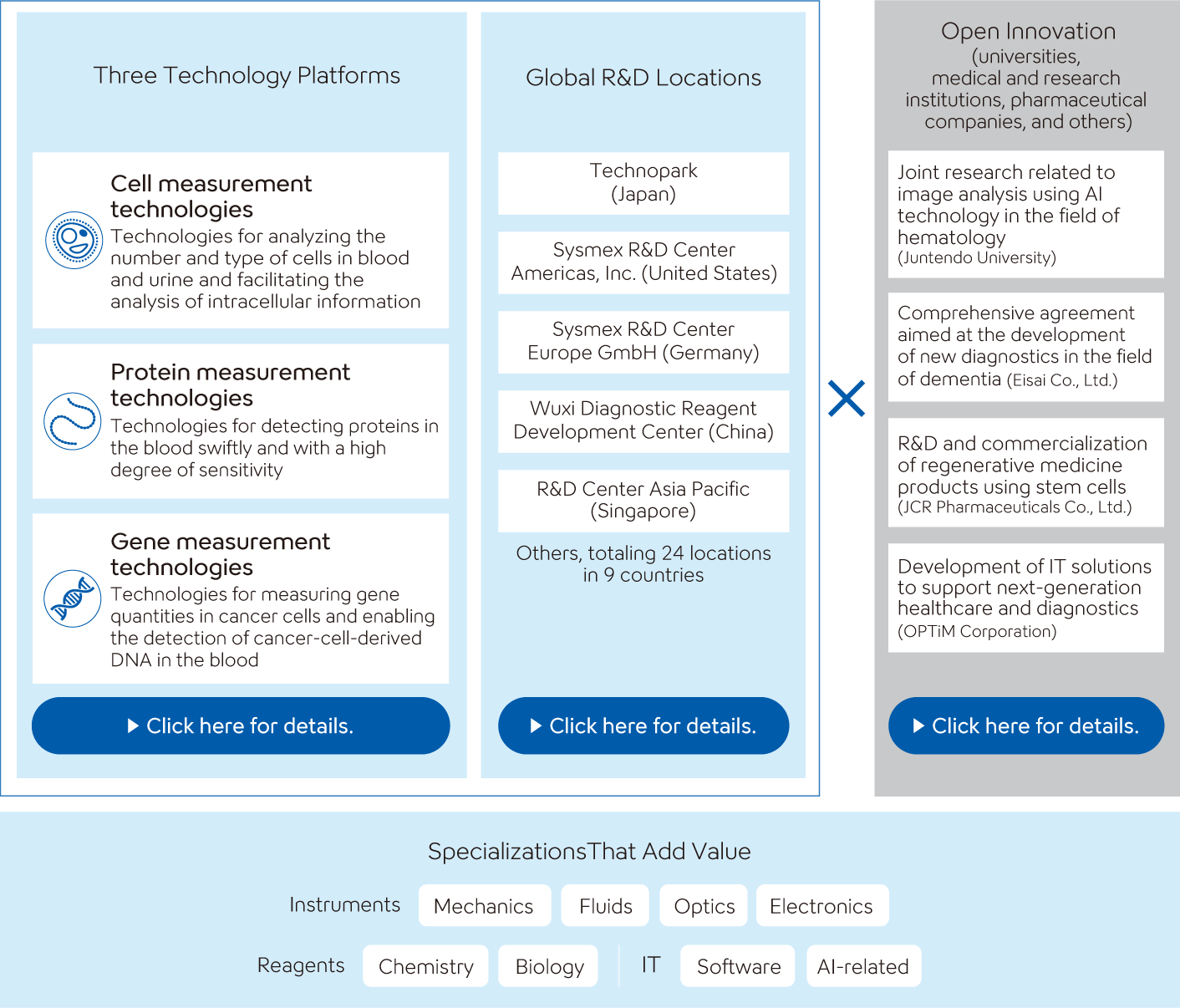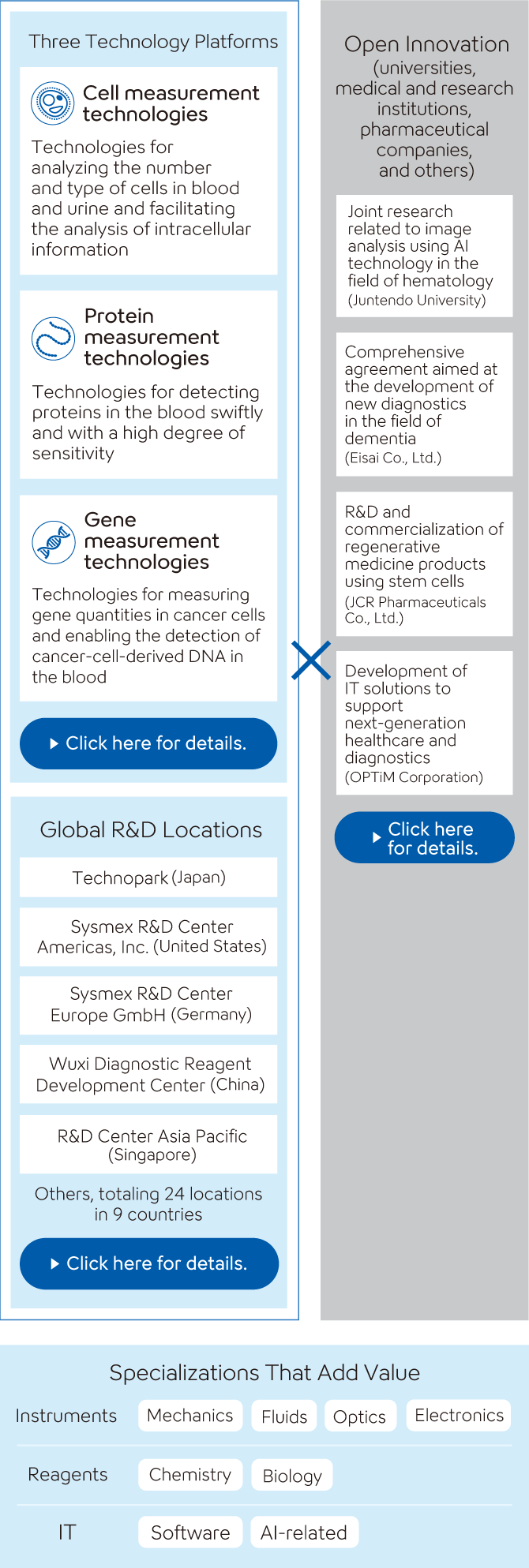Research & Development
R&D Vision
R&D Vision




Extending healthy life expectancy Improving medical access
Medical sophistication Optimization of medical costs
We believe that the mission of Sysmex is to contribute to the development of medicine and the health of people.
To realize optimal medical care for everyone, we are working to create unique and highly valuable testing and diagnostic technologies.
Research & Development Initiatives
Aiming to grow existing fields such as hematology, we are expanding our technology in the diagnostics business.
In addition, we are working to develop new technologies with the aim of social implementation of high-clinical-value diagnostic and liquid biopsy technologies* to refine personalized medicine and testing.
As we expand into new markets, we will enhance the value of testing and diagnosis by expanding the scope of testing, and we will also work to develop technologies to realize personalized prevention and prognosis monitoring. We will also leverage Sysmex's strengths in therapeutic areas such as medical robotics and regenerative medicine.
*Testing of blood and body fluids for disease which is less invasive than conventional biopsies.
Foundation for Research & Development
Through our global R&D system, we aim to access world-class technologies and to conduct R&D tailored to local needs. We also work to develop innovative technologies through open innovation with outside partners.


